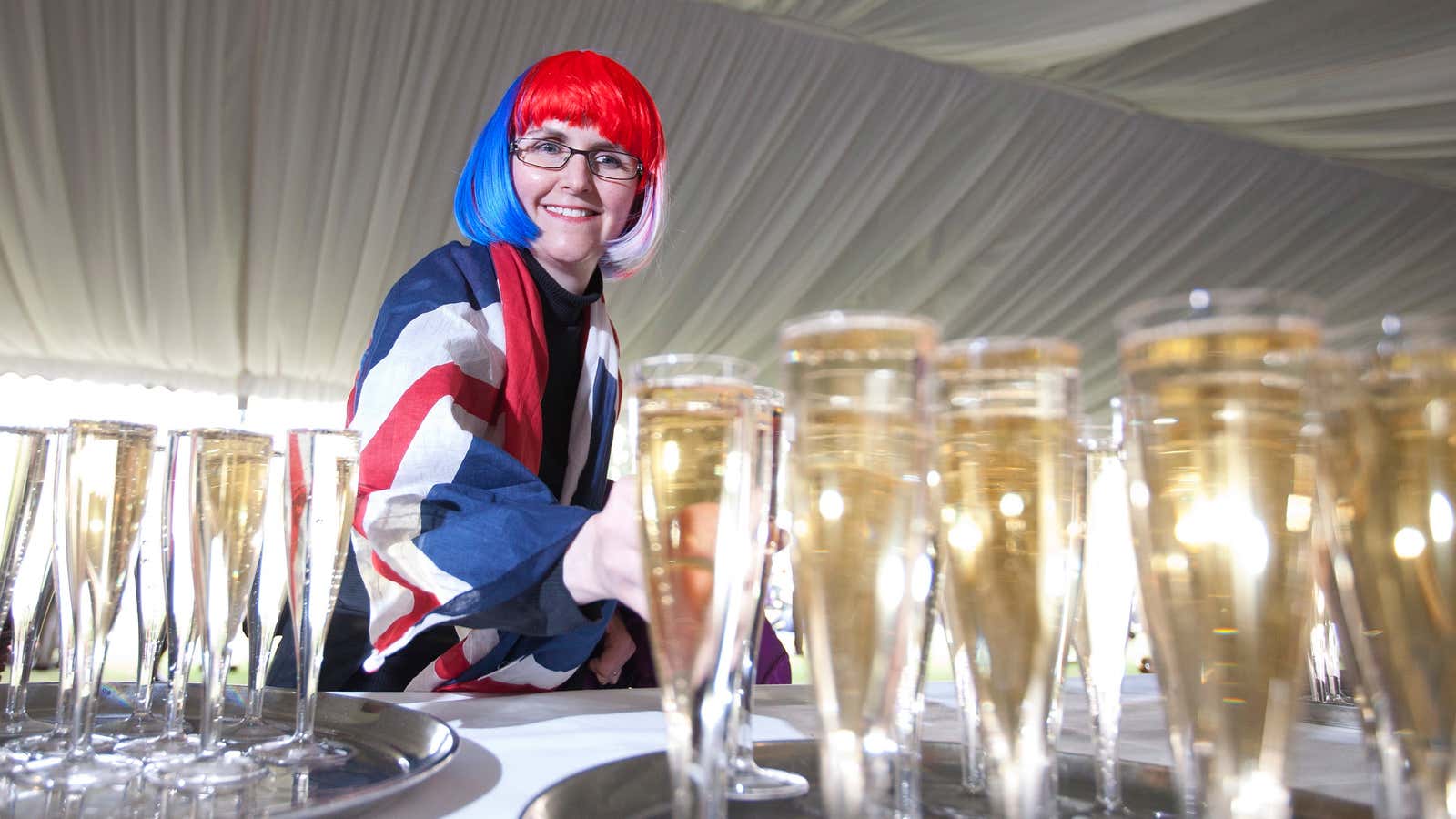English wines have long been the butt of international jokes. By conventional wisdom, England lies too close to the northern edge of the 30°-50° latitude range where wine flourishes in the northern hemisphere. But many experts say that if the global temperature continues rising at its current rate, the U.K. may become a premier wine-producing region, equal to or excelling some regions in France. Wine growers in the U.K. are banking on the anticipation that within decades, the wine growing regions of the U.K. – found largely south of London — will have the same climate as the Champagne region does today.
“With every degree Centigrade that the global temperature rises, the wine growing envelope moves 270 km north,” says Frazer Thompson, chief executive of Chapel Down Wines – based in Kent and one of the UK’s most decorated sparkling producers. Owing to the wine grape’s hypersensitivity to infinitesimal changes in climate, the world’s wine growers were among the first members of the agricultural industry to witness aberrations in their product as a result of climate change. Wine producers noticed as early as the 1970s that grapes were ripening earlier and earlier every year. Some regions, like France’s Chateauneuf-du-Pape, now harvest their grapes an average of a month earlier than they did half a century ago.
For regions that are already quite warm, like Burgundy, Provence, and Italy, rising temperatures are a cause for panic. But one man’s tragedy is another’s triumph. “There’s a gold rush to plant Chardonnay, Pinot Noir, and Meunier in the UK,” according to Thompson (Meunier is the grape used to make champagne). He points out that vines require some 20 to 30 years to mature, which is the same period of time that it might take for temperatures to rise to ideal champagne conditions. For him and other U.K. wine growers betting on the trend, the time to act is now.
Former UK hedge fund manager Mark Driver bet his career on it. He gave up his career at Horseman Capital Management two years ago and will be investing over £10 million of his own funds to build Rathfinny Estate, a vineyard in East Sussex. He planted the first vines this year, with an eye to release a million bottles a year of English sparkling within the decade. He told Quartz: “Why not England? We’ve had this big increase in average temperatures in the last 20 to 30 years, so we’re benefitting from climate change.” He joked, “In 50 years, perhaps we’ll be growing grapes in Scotland. But for the time being, the place to be is southern England.”
Climate is not the only factor determining the quality of wine, however. Soil composition is also key. Thompson is confident on that point: “What’s the first thing you see when you come to England? The White Cliffs of Dover. And what are the cliffs made of? Chalk. If you want a perfect terroir, chop my land in half and see what you have.”
Furthermore, he said, the much-maligned English weather is actually good for sparkling wines. His vineyards’ proximity to the sea (12 miles/19 km) yields “frost free weather, which you don’t get in Champagne.” Asked whether English wines would surpass French wines in 30 years or so if the warming trend holds, Thompson boasts: “[English sparkling] already is better than champagne. We invented sparkling wines 20 years before Dom Perignon bottled them. The future is in England for champagne.”

Another English wine-grower and wine consultant, Stephen Skelton, explained why warmer temperatures contribute to better wine. “What matters to us most are night-time temperatures. If the nights are getting warmer, the vines start photosynthesizing earlier in the day. That’s when they make sugar. My vines are producing 75% to 100% more sugar than when I started growing grapes in 1976.”
Skelton is more reserved in his enthusiasm for global climate change than is Thompson, however, saying that climate change means much more than just rising temperatures. “There are so many imponderables,” Skelton told Quartz. “What’s happening with the Gulf Stream and the polar ice cap is uncertain. We had 100-year-events [flooding] three times in the last 10 years.”
With any disaster, there are always those who benefit. In the case of global climate change, English wine-growers have reason to be jubilant. History may further support the case. English monasteries in the middle ages had flourishing vineyards. Perhaps not coincidentally, this boom occurred during the so-called medieval warm period, which some scientists believe was the last significant period of global warming in the Northern Hemisphere before the 20th century.
